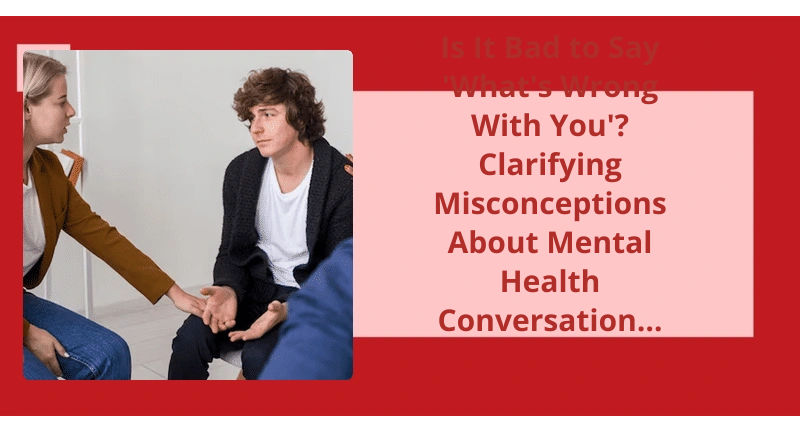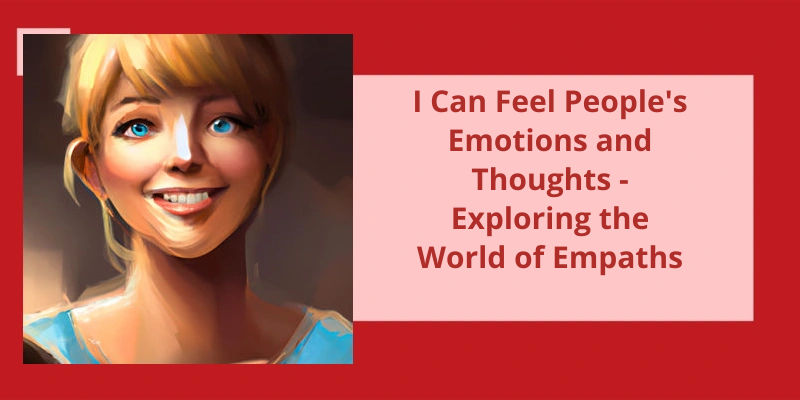Communication is a complex process that often relies on implicit and explicit cues, as well as social norms and cultural expectations. One of the most common phrases that many of us use in conversations is "What's wrong with you?" However, this seemingly innocuous expression can carry a lot of negative connotations, especially in confrontational situations. In fact, it can be seen as demeaning, condescending, and hurtful, particularly when directed towards children or vulnerable individuals. Instead of using this phrase, it’s advisable to first ask questions to understand the facts and intentions behind the situation. By doing so, we can foster more effective communication and avoid causing unnecessary harm or offense.
What Does It Mean When Someone Says What’s Wrong With You?
Instead, try to take a moment to assess what was said or done that caused the negative reaction. It’s possible that the other person is simply having a bad day or reacting poorly to something unrelated to you. If you can stay calm, you may be able to talk it out and come to a resolution.
However, if the person consistently makes negative or rude remarks towards you, it may be a sign of deeper problems in your relationship. It may be worth considering if you want to continue interacting with someone who constantly expresses negativity towards you. On the other hand, if it’s a friend or family member who you care about, it may be worth addressing the issue and finding a way to communicate and resolve any conflicts.
Ultimately, when someone says “What’s wrong with you?” it’s important to remember that it’s just their perception of your actions or words. It’s possible that you may have done or said something that didnt sit well with them, but that doesn’t necessarily mean there’s something fundamentally “wrong” with you. Try to take it as constructive criticism, consider what was said, and move forward positively.
In some cases, when someone says “What’s wrong with you?”, they may actually be genuinely concerned for your well-being. It could be a sign that they noticed something off about your behavior or mood, and want to check in on you. In these situations, it’s important to be open to their concern and be honest about how you’re feeling.
It’s not uncommon to feel irritated when someone asks the question, “What’s wrong?” But have you ever stopped to consider why this simple inquiry can elicit such a strong reaction? There could be a variety of reasons, including feeling judged or labeled as someone who always has a problem. Let’s explore these possibilities further.
Why Do I Get Annoyed When Someone Asks Whats Wrong?
* You may feel that they don’t take the time to really understand you and your emotions. Simply asking “whats wrong?” or “are you okay?” can come off as insincere, especially if the person asking hasn’t shown much interest in your life before.
* There may be some past experiences where people have asked this question in a way that made you feel uncomfortable or vulnerable. This can create a negative association with the question, making it difficult for you to respond to it in a positive way.
* It’s possible that you may not know how to express your emotions, and when someone asks you what’s wrong, you feel like you’ve to explain something that you may not be fully aware of yourself. This can create a sense of discomfort and can lead to annoyance.
* Another reason why someone may react negatively to being asked what’s wrong is that they may feel like they’re being put on the spot. If you’ve just experienced something emotional, the last thing you may want to do is talk about it in the moment. This can lead to a sense of frustration or even anger when someone tries to probe you for answers.
Overall, there can be many reasons why someone may feel annoyed or frustrated when asked what’s wrong. It’s important for loved ones and friends to approach this question in a sensitive and caring way. Asking what someone is feeling and showing genuine interest in their well-being can go a long way in building strong relationships and supporting those who may be struggling with their emotions.
Source: DAE absolutely hate when you’re continually asked …
Proper communication is essential in any interaction, especially in confrontational situations. It’s important to avoid phrases that may come across as demeaning or condescending, such as “What’s wrong with you?” This can cause more harm than good, especially when directed towards children. Instead, taking the time to understand the facts and intentions behind the issue can lead to a successful resolution and a healthy relationship.
Why Is It Bad to Say Whats Wrong With You?
It’s important to understand why saying “Whats wrong with you?” could be harmful. Firstly, it implies that there’s something inherently wrong with the person, which can be damaging to their self-esteem and self-worth. This is especially true for children who’re still developing their sense of self. Instead, it’s important to ask questions in a non-judgmental manner to understand the situation.
Furthermore, saying “Whats wrong with you?” can come across as accusatory and confrontational, which may escalate the situation and make it harder to resolve. This can be particularly problematic in situations where emotions are running high, such as arguments or disagreements. Asking open-ended questions and using reflective listening techniques can help to defuse tension and lead to a more productive conversation.
Another reason why it isn’t helpful to say “Whats wrong with you?” is that it assumes that the other person is solely responsible for the problem. This ignores the fact that there may be external factors at play that are contributing to the issue. By taking a more collaborative approach and asking questions, you can work together to identify the root cause of the problem and find a solution that works for everyone.
It’s also worth considering the power dynamic at play in any given situation. Saying “Whats wrong with you?” can be particularly harmful in situations where one person has more power or authority than the other. This can create a sense of powerlessness and undermine the other persons confidence. Instead, it’s important to approach the situation with empathy and a willingness to listen.
Finally, it’s worth noting that the words we use can have a profound impact on how we’re perceived by others. By taking a more compassionate approach and using thoughtful language, you can build stronger connections and create a more positive environment for everyone involved.
Conclusion
In conclusion, effective communication is key in any relationship and confrontational situations should always be handled with care. Instead, taking the time to ask questions and understand the facts and intentions behind the situation can lead to a more productive and positive outcome. Empathy and understanding will go a long way in resolving any issues and improving relationships. Remember to always treat others with respect and kindness in any interaction.






